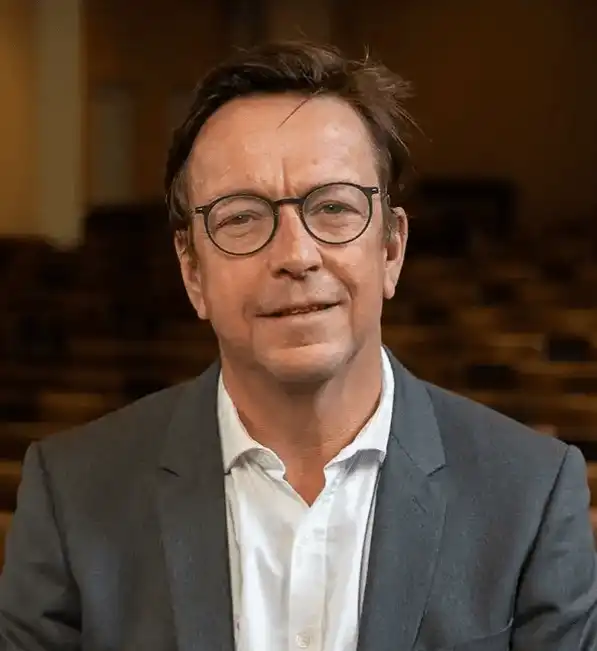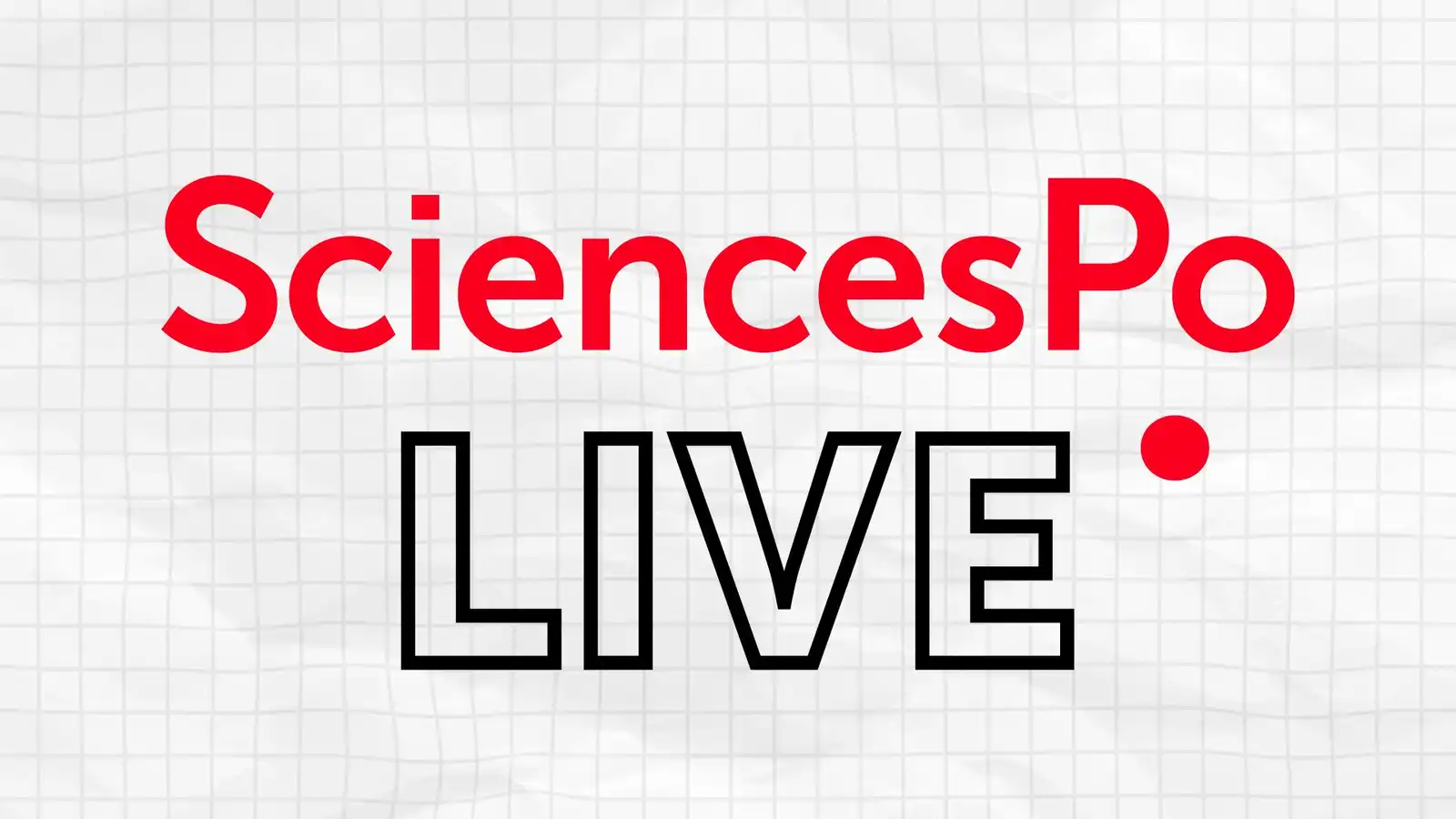
Home>Academics>Two-Year Master's Programmes>The 11 Policy Streams of the Masters>Master, Policy Stream: Global Health
Master, Policy Stream: Global Health
Information Sessions: Masters

Discover all the Master's programs and admissions procedures during our many webinars and YouTube Live dedicated to future applicants.
Please note
Two tracks are offered:
- The English track, entitled Global Health (eng.) and described below, offers a comprehensive understanding of the current global health landscape and issues.
- The French track, entitled Santé (fr.) focuses on the national vision and specificities.
Description and objectives of the Global Health Policy Stream
Health system building, strengthening and resilience, health financing and regulation, technological innovation, people-centred health care, availability of sufficient human resources for health, health crisis management: here are some of the challenges health systems are facing today. The Global Health Policy Stream of the School of Public Affairs’ Masters offers a multidisciplinary approach to understand, tackle and find innovative solutions to public health policy issues.
Combining theoretical and practical comparative approaches, and drawing on courses taught by both permanent faculty members at Sciences Po and practitioners from the health sector, the programme aims to equip students with a range of coursework, tools, and skills needed to implement integrative problem-solving for global and domestic health issues. It also prepares them to operate at the national, European, and international levels in a sector marked by constant change.
Starting in 2026, the Global Health stream will continue to offer training on global health actors and financing, along with the addition of a course on comparative welfare state systems, providing key insights into the dynamics shaping social policies.
Curriculum of the Global Health Policy Stream
First year of master
Students follow courses presenting the actors, processes and challenges health systems are facing (semester 1) as well as the normative and economic tools for understanding these issues (semester 2): Global Health Governance and Challenges, Global Health Policy, Global Health Law and Regulation, Global Health Economics.
In order to complement this toolset, a biostatistics workshop is offered during the inter semester.
Second year of master
The second year allows students to develop professional skills depending on the sector they want to evolve in, whether in the public, private, research, voluntary or non-governmental sector. Courses in the third semester cover Evidence-based health policy-making, and Rethinking data governance for Health system Innovation.
During their final semester (semester 4), students have the opportunity to apply these professional skills through an internship or to further develop an area of expertise by writing a Master's thesis or by undertaking an academic exchange at a partner university.
This curriculum is completed by common academic core courses, core courses specific to the chosen Master's degree, elective courses, language courses and optional courses.
Specific policy stream courses of the Global Health Policy Stream
- Global Health Governance and Challenges
- Global Health Policies
- Global Health Law and Regulation
- Global Health Economics
- Evidence-based policy making in health: theory and practice(s)
- Rethinking data governance for Health system Innovation
Programme of the Global Health Stream
Master in Public Policy - Global Health stream:
Master in European Affairs - Global Health stream:
Career opportunities after the Global Health Stream
At the end of the programme, students will be equipped with the following professional skills:
- Analyse & Evaluate public policy in health;
- Connect research & policy;
- Advocate for a cause;
- Be able to develop health strategies at the local, national or international level;
- Manage a health project;
- Monitor & evaluate a health programme.
Our graduates pursue careers in:
- Government, for example at the Ministry of Health or in Health agencies;
- Hospitals, both public and private;
- Consulting firms in strategy, transformations, communication;
- Industries, like pharmaceutical industries, biotechnology firms or food industries;
- European institutions or European health agencies;
- International Organizations.
- Operational & advocacy non-governmental organizations.
- Foundations;
Scientific advisor of the global health stream

Henri Bergeron - CNRS Research Professor, HDR, Dean of the School of Public Affairs, Holder of the Chair in Work and Organisational Change, Dean of the School of Public Affairs
Henri Bergeron holds a DEA (Diploma of Advanced Studies) and a PhD in Organisational Sociology from Sciences Po (1997). A CNRS research fellow, he teaches Organisational Sociology at Sciences Po at both the undergraduate and Executive Education levels. His research focuses on health policies and the transformation of medical practices and professions, exploring various subjects such as illicit drugs, alcohol, obesity, medical research, and public health. He is particularly interested in the connections between knowledge, expertise, and politics, as well as the role of knowledge in professional practice and the mechanisms that contribute to the formation of collective beliefs.
Within Sciences Po, he holds the Chair of Organisational and Work Transformation, is the Director of the Masters in Organisational and Human Resource Management, Director of the Health Policies Research Group at the Laboratory for Interdisciplinary Evaluation of Public Policies (LIEPP), Scientific coordinator of the Sciences Po-FNSP Health Studies Chair, and Co-chair of the "Digital, Organisations and Public Affairs" Chair.
In the realm of Sciences Po Executive Education, he served as the Director of the Executive Master in Public Policy Management from 2017 to 2024. He served as the the Academic Director of the Executive Master of Public Administration for the inaugural cohort os 2024-2025, and is now the Dean of the School of Public Affairs at Sciences Po.
He has authored sociological and scientific articles and reports, participated in congresses, and written several books, including "What Future for the Organisation of Primary Care in France?", "Political Sociology of Health", "The Behaviouralist Bias", and "COVID-19: An Organisational Crisis".
Contact
- Academic advisor: emelyne.grellety@sciencespo.fr
- Academic assistant: delphine.schittone@sciencespo.fr
